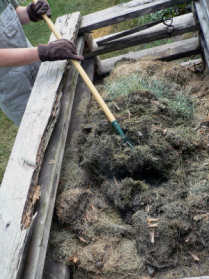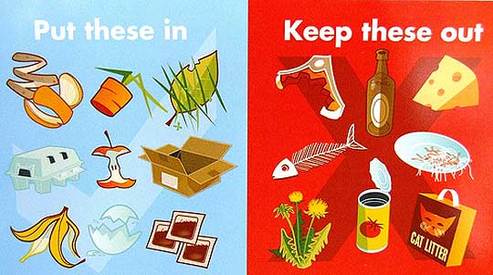What is Composting?
Composting is nature's process of recycling decomposed organic material into a rich soil, called compost. By composting your organic waste you are returning nutrients back into the soil in order to make rich soil to grow healthy plants. Finished compost will look like dark brown soil, will be crumbly, and smell like a forest floor.
How Can I Start Composting?
Composting is a very simple process. First thing you need to do is find a place for your compost. Some people choose to leave their compost on the ground, while others build or buy bins to hold their compost. Next is to actually start the composting. It all depends on good compost because good composting is a matter of providing the proper environmental conditions for microbial life. Due to this, you need to remember three things while making your compost: air, water, and food. Seeing as the microbial life need air to speed up the process to composting, you will need to mix up your compost to allow more air in or add ingredients such a straw. The microbial life also need water to survive, but not too wet as to make the pile heavy causing a restriction in airflow. Be sure to wet your compost in a dry climate, or put a tarp on it in a wet climate. Microbial life will also need two types of food, the brown, dead plant matter such as straw, and green, fresh plant matter such a weeds. There is a good example of compost below:
What Should I Compost?
A great variety of things can be composted at home, saving them from a one-way trip to the landfill, and turning them into a valuable soil amendment for home use. The following items and more can be added to your compost pile: grass/lawn clippings, hay, kitchen waste, leaves, straw, weeds and other garden wastes, and wood chips and sawdust. Some items can be bad to your compost and make your compost a bad soil. The following items and more shouldn't be added to your compost pile: chemically-treated wood products, diseased plants, human wastes, meat, bones, fatty food wastes, pernicious weeds, and pet wastes.


